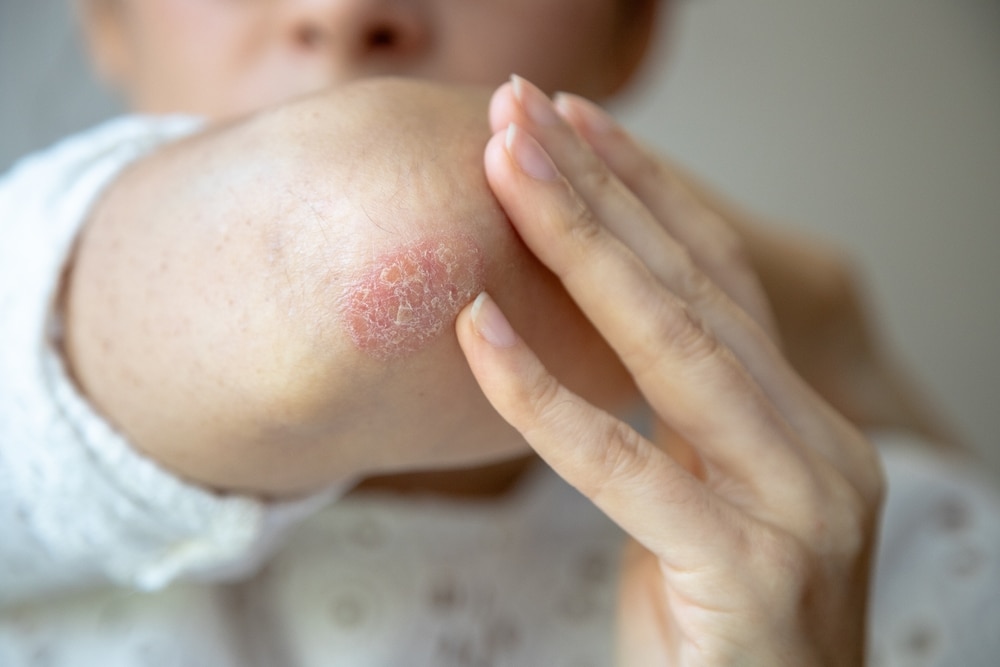Red, scaly, and itchy skin may have you guessing the cause. Is it psoriasis or a fungal infection? These conditions can appear alike on the surface, but they require very different treatments. Receiving the correct diagnosis is the first step toward achieving healthy skin.
At SkinSmart Dermatology in Sarasota, FL, Dr. Elizabeth F. Callahan leads a team of board-certified providers with extensive training in various dermatological issues, as well as autoimmune and infectious skin disorders. Dr. Callahan is double board-certified in Dermatology and Mohs Surgery and completed her fellowship at the Mayo Clinic. Her experience and credentials ensure that your skin condition is diagnosed and treated with precision.
What Does Psoriasis Look Like?
Psoriasis is an autoimmune condition that causes the skin to regenerate too quickly. This buildup leads to chronic inflammation and visible symptoms that can affect self-confidence. Signs of psoriasis often include:
- Thick, red patches: Often topped with silvery-white scales.
- Itching and burning: These symptoms can flare and recede over time.
- Affected areas: Most common on elbows, knees, scalp, and lower back.
While psoriasis is not contagious, it is a chronic condition that is often triggered by stress, illness, or environmental factors. The key to controlling it is long-term management.
Symptoms That Point to a Fungal Infection
Fungal infections are caused by yeast or mold organisms and spread easily in warm, moist environments. While not autoimmune like psoriasis, these infections can appear quite similar at first. Look out for these signs:
- Red, ring-shaped rashes: Often itchy with raised borders.
- Scaling and peeling: Usually appears between toes, in skin folds, or under the nails.
- Rapid spread: Infections may worsen or transfer to others without proper care.
Fungal infections are contagious, unlike psoriasis. They often respond quickly to antifungal creams, but recurring cases may require oral medications.
How to Tell the Difference Between Psoriasis and Fungus
It can be challenging to distinguish between these two without expert assistance. Several signs can point to one condition over the other:
- Location matters: Fungal infections tend to prefer moist areas, while psoriasis often affects drier skin.
- Scaling style: Psoriasis scales are thicker and silvery; fungal infections are thinner.
- Family history: Psoriasis often runs in families.
Still unsure? A SkinSmart dermatologist can perform a skin scraping or biopsy to confirm the diagnosis. Getting it right is essential for starting the correct treatment.
Get Expert Answers in Sarasota
If your skin shows stubborn patches or unusual rashes, it may be time to consult a specialist. Contact SkinSmart Dermatology in Sarasota, FL, at 941-308-7546 to schedule an appointment.


